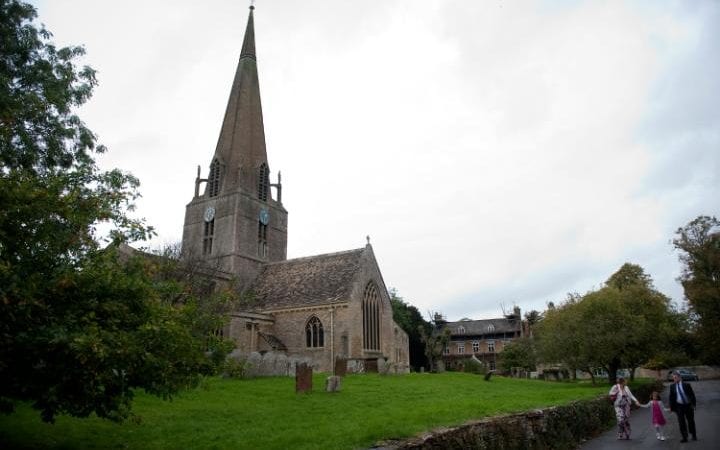By Ben Riley-Smith
Church spires in Britain’s most remote communities are to be rigged up with broadband satellites in a new government drive to boost internet connection.
The Church of England has offered use of its 16,000 churches to help the Tories deliver on a promise to bring superfast broadband to 95 per cent of properties.
Ministers believe the innovative technique can help get online communities so remote that traditional broadband delivered by wire cables is too difficult.
Matt Hancock, the digital and culture minister, will meet the Rt Revd Martin Seeley, the Bishop of St Edmundsbury and Ipswich, and other religious figures later this month.
Steps have already been taken in the Digital Economy Bill going through Parliament to decrease the cost of using church spires to broadcast broadband.
Ministers also want to help design a model legal contact for installing satellites on church spires that dioceses hoping to follow suit can use.

Mr Hancock, who is tasked with delivering the Government’s broadband rollout, confirmed his interest working with the church to boost rural connections.
“Nine out of 10 UK homes and businesses can now get superfast broadband, but getting to the hardest to reach places requires an innovative approach and a mix of technologies,” he told The Telegraph.
“We’re working with the church to explore how spires might form part of the mix and I am meeting with bishops later this month to discuss this.”
The Tories promised to deliver superfast broadband – judged to 24Mbps or more – to 95 per cent of UK properties by the end of this year.
Ministers have grown frustrated with “sleepy” BT over its lack of innovation in trying to deliver broadband to some of the more remote parts of the UK.
They are increasingly turning their attention to smaller broadband providers using unusual techniques to get broadband to rural communities.
Caroline Spelman, the Tory MP and Second Church Estates Commissioner, last year wrote to the departments of Culture and Environment suggesting churches are used to deliver broadband.
Traditional broadband is delivered through fibre cables but is unreliable when used to reach rural communities surrounded by challenging terrain.

However church spires can be rigged to broadband satellites which can beam internet to nearby houses and businesses, taking advantage of their elevated position.
Britain’s religious history also means that almost every small rural community has a church – often the same areas that struggle to get broadband connection.
Ministers have therefore signalled their enthusiasm and will meet with religious figures within weeks to see where they can help.
It is expected that private companies would pay for the installation of the technology in return for the financial benefit of securing any broadband contracts that follow.
Sir Tony Baldry, chair of the Church Buildings Council, said the Church “stands ready” to help the government broadband “not-spots”.
“In many parts, the government has contracts with county councils or others to get 90 per cent coverage. The challenge is then what you do with the remaining 10 per cent,” he told The Sunday Telegraph.
“For many of those areas there will be parish churches will church spires or towers that could serve as useful help for sorting out the WiFi problems.”
He added:“There have been meetings [with government figures]. We’ve made it very clear to the Culture Department that we are ready and willing to help tackle not spots. The ball is in their court as to whether they are willing to share with us where those not-spots are.
He added:“There have been meetings [with government figures]. We’ve made it very clear to the Culture Department that we are ready and willing to help tackle not spots. The ball is in their court as to whether they are willing to share with us where those not-spots are.

